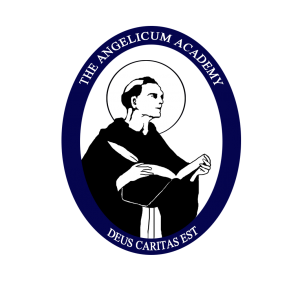“To be always seeking after the useful,” said Aristotle, “does not become free and exalted souls.”
In the spring of this year, education in our country was set into chaos. Teachers and administrators scrambled to find ways of delivering instruction in a remote setting. The fall rolled around, and the educational process had been revolutionized. With less class time for students, many teachers have pared down on their class material to “just the essentials.”
This, then, would be a good time to question what those essentials are. When it comes to the education of our children, what is most necessary? What is the real purpose and goal of education? It is always necessary to keep the goal of any activity in mind, especially an activity as important as education, but it is even more necessary in a time of upheaval.
Since I am a student of philosophy, I like to bother my students with deep questions that they don’t want to think about (some of these conversations are recorded in my book Philosophy Fridays). One of those questions, which I bring up a few times throughout the year, is this: why go to school? Students answer with the typical replies: to get good grades, to get into a good college, to get a good job, to make money, and so on. Basically, school is useful for getting along in life.
This is known as the utilitarian view of education, and they have been well-schooled in it. Students learn skills that will prepare them to fulfill some useful function in society. The job of a school is to fashion a gear for the machine of the economy.
One of the highlights of this year for me has been moderating Great Books discussions for the Angelicum Academy, and at the start of our first discussion (on Hesiod and Aeschylus, if you are interested), Steve Bertucci, the program’s director, offered a view of education that differs vastly from the technical view of our current society: the goal of education is to learn to love the things we ought to love. He cited Socrates.
Desmond Lee translates a passage of the Republic (Book III, 403c) this way: “The object of education is to teach us to love what is beautiful.” We ought to love what is truly beautiful, and we ought to love most what is most beautiful. Far from learning skills for work, education should be primarily about love and beauty.
Christopher Scott Sevier, in his book Aquinas and Beauty, comments, “What we love says a great deal about our character.” Education, then, is a formation of our character so that the beauty of what is beautiful can find a home in the beauty of a virtuous soul. Education is “training in virtue.” The development of right love is the development of the person as a whole. Well-ordered affection takes time and effort and ought to be the main thing in education.
Aristotle warned us, more than 2000 years ago, against the utilitarian view of education: “To be always seeking after the useful does not become free and exalted souls.” Who would not want the children of their world to become free and exalted in soul?
Again, Aristotle writes, “There is a sort of education in which parents should train their sons, not as being useful or necessary, but because it is liberal or noble.” The utilitarian view of education aims at developing useful humans. The educational view of Plato and Aristotle (and others) aims at developing excellent humans. Good skills are incidental to the human person. Being a good human is essential to the human person. As beings with free will, we participate in our own becoming. What we become depends on what we think, say and do.
One of the many quotes on my classroom wall reads: “One of the great problems of our time is that many are schooled, but few are educated.” That was written by St. Thomas More in the 16th century. I wonder what he would have to say about our schools now.
Epictetus said, “Only the educated are free.” For all our schooling, we are not free and exalted in soul. Only the virtuous are free. Only those who can love what they ought to love are free. Only those with well-ordered affection are free. Only those who can be pierced by what is truly beautiful are free, because Beauty is Truth, and “The truth will set you free.”
If education is being re-invented, it ought to be founded on solid principles. The essential thing about education is its purpose, and an education that loses its true purpose may turn out to be no education at all.
Matt D’Antuono is a physics teacher in New Jersey, where he lives with his wife and eight children. He holds bachelor’s degrees in physics and philosophy, a master’s degree in special education, and is working on a master’s degree in philosophy at Holy Apostles in Cromwell, Connecticut. He returned to the Catholic Church in 2008. He is the author of A Fool’s Errand: A Brief, Informal Introduction to Philosophy for Young Catholics, The Wiseguy and the Fool and Philosophy Fridays. On YouTube you can find him at DonecRequiescat and his family at MisterD418.

